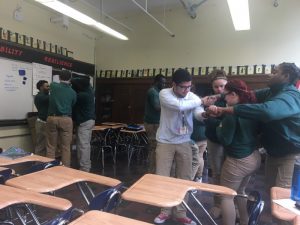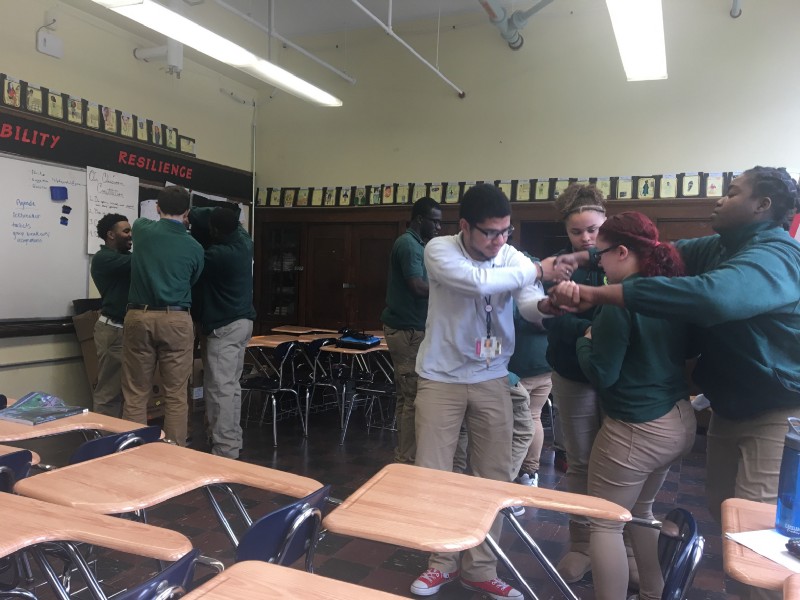It’s Personal
By Ellie Sanchez, MA Program Associate
Within the past few weeks, many of our classes have dove into a variety of issues they feel connected to at the school, neighborhood, city, and state level. Issues our students in Massachusetts have brainstormed include immigration policies, solar panels on public buildings, and consent education to reduce sexual assault. Students typically arrive at these community issues one of three ways:
- Community Interviews: For homework, students are entrusted with finding 2–3 people to interview about what they think are the pertinent issues in the their communities. Interviewees can be anyone from parents, to the local convenience store owner, or the school police officer.
- Media: What are students hearing in the media as current issues, and what are the headlines in their local newspapers?
- Own observations: What are the challenges students deal with on a weekly, or even daily basis?
Students often choose to focus on their own observations because of their personal connections to community issues. These are concerns they have dealt with for a long time, and through GC, they now have an outlet to address these concerns and figure out a policy solutions for them.
Two weeks ago, I had the privilege of helping one of our classes come to a consensus on what issue they should work on. The two issues were gang violence, a common topic for our students in Boston, and affordable housing, which is an issue that keeps growing every year.
We talked about the pros and cons of voting on an issue versus building consensus, and decided that it was best for everyone to have a say through consensus because this is a semester long, very personal project. The discussion that ensued was one of excitement, stories of students’ own experiences dealing with these issues, and whether or not they could do something about it. That last piece is something that comes up frequently with our classes, particularly when they come up with very pertinent, but large issues to tackle, like gang violence. I don’t know about you, but if someone told me that I had to solve all of gang violence in 10 weeks, I’d want to give up too. Luckily, GC is about taking action in local, tangible ways, such as identifying proposed legislation or addressing the issue at the school level, rather than saving the broader issue of gang violence.
One of the most powerful parts of my job is that, when students feel like they can’t change anything, or that they don’t have a say, their teachers, democracy coaches, and I get to help them realize that there are so many ways that they can take this on, right here in their schools and neighborhoods, and in the communities they care about. There’s always an ordinance they can advocate for or against, or a funding request that just hasn’t been made. The action is there.
This class, in South “Southie” Boston ended up choosing the topic of affordable housing in the city. The students are currently researching different pieces of legislation they can support, specifically around allocating more funding and resources to public housing, which is something they’re all passionate about.
They say all politics is local, but after working with a Generation Citizen class, I say all politics is personal.

